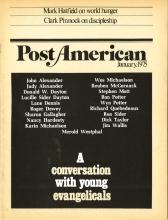I have been following recent events in Korea with mounting concern. After reading through stacks of reports and documentation from many varied sources, I was confronted with the gravity of the situation brought about by the repressive policies of the U.S.-supported regime of President Park Chung Hee.
Christian churches and groups have continued to provide vital information and news in the face of complete government censorship of the press. Along with the work of the foreign press, this communication from Korean and other Asian Christians has helped to focus world attention on the Korean situation. Christianity has a long and honored tradition in Korea and has been marked by a strong strain of dissent to oppression. Christian groups played an important role in resistance to Japanese colonialism in Korea from 1910 to 1945.
Now, the Christian resistance is directed toward the regime of President Park, who proclaimed martial law in October of 1972, jettisoned the Constitution, placed his opponents under arrest, suspended political activities, and ended freedom of speech and freedom of the press. The next month, Park imposed a new Constitution which gave him unlimited powers and lifetime tenure of office. He justified these extraordinary measures by claiming a threat of communism from North Korea and stating that economic progress requires the sacrifice of civil rights.
Not everyone agreed. In October 1973, student demonstrations broke out in the Korean universities. Protest also came from Christian leaders in both the Catholic and Protestant communities demanding an end to police-state tactics and a restoration of democratic procedures.
Read the Full Article

